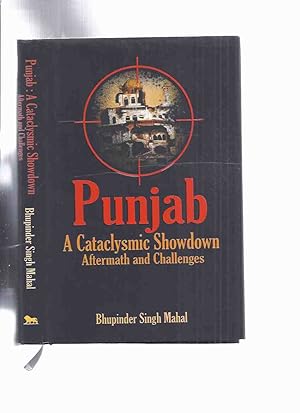Synopsis
The book outlines the Sisyphean task Akalis faced trying redeeming to no avail Pandit Nehru's pre-independence promise allowing Sikhs to enjoy a glow of freedom in the north of an independent India. It delves into the anatomy of the Akalis' titanic struggle with Mrs. Gandhi for conceding basic demands set out in the Anandpur Sahib Resolutions to the Sikhs that was to culminate in an ill-conceived and ruthless attack in June 1984 on the Golden Temple; and, which set in motion a train of incalculable calamitous events. The author surveys the aftermath of the showdown when in a brief defining moment Sikhs coalesced into a rarely occurring united front (a qaum) and how that shining instant wasted away with the changing contours of political landscape, Sikh identity, didactic approach and doctrinal ambiguities. Post-1984 some flawed notions of Sikh religion have gained currency and by way of illustration the author points out Nobel Laureate Naipaul s misconstruction of Sikh history and religion in the book India: A Million Mutinies Now and Gurpreet Kaur Bhatti s attack on Sikh iconography in her controversial play Behzti (dishonour). He also examines the predicament of the Sikhs of diaspora who face the twin risks of ensuring their right to wear turban in the workplace and avoiding cross-cultural influences likely to hybridize their religious traditions.
About the Author
Bhupinder Singh Mahal has written extensively for Sikh journals, newspapers and magazines in Canada, United States, England and India on Sikh ethos in general and evolving situations and challenges facing Sikh diaspora in particular. He has lived and or worked on five continents. His international manifold experience has provided him with a platform to promote multiculturalism in Canada. From 1990 to 1994 he served on the Canadian Multiculturalism Advisory Committee, a body responsible for policy development in the elimination of barriers to achieve social, cultural and economic equality for all Canadians. Since 1997 he has been playing a very proactive role in the health care arena: serving four years as Vice Chair of a leading health provider organization and by serving on the Council of the College of Physiotherapists, both Order-in-Council appointments by the Ontario government. In March 2009 Mr. Mahal was appointed Chairperson, Employment Insurance Board of Referees (a Governor-in-Council appointment). The legislatively prescribed Board is a first-level, independent, administrative tribunal mandated to provide fair and impartial quasi-judicial hearings of appeals of Employment Insurance decisions. In 2003 he was awarded the Queen's Golden Jubilee Medal, created to mark the 50th anniversary of the accession of Queen Elizabeth ll to the throne, for contribution to Canada, to the community and to fellow Canadians. In 2007 he was awarded Council Award by the College of Physiotherapists of Ontario in recognition of significant contributions ensuring the physiotherapists provide high quality, competent and ethical services that protect the public interest.
"About this title" may belong to another edition of this title.

